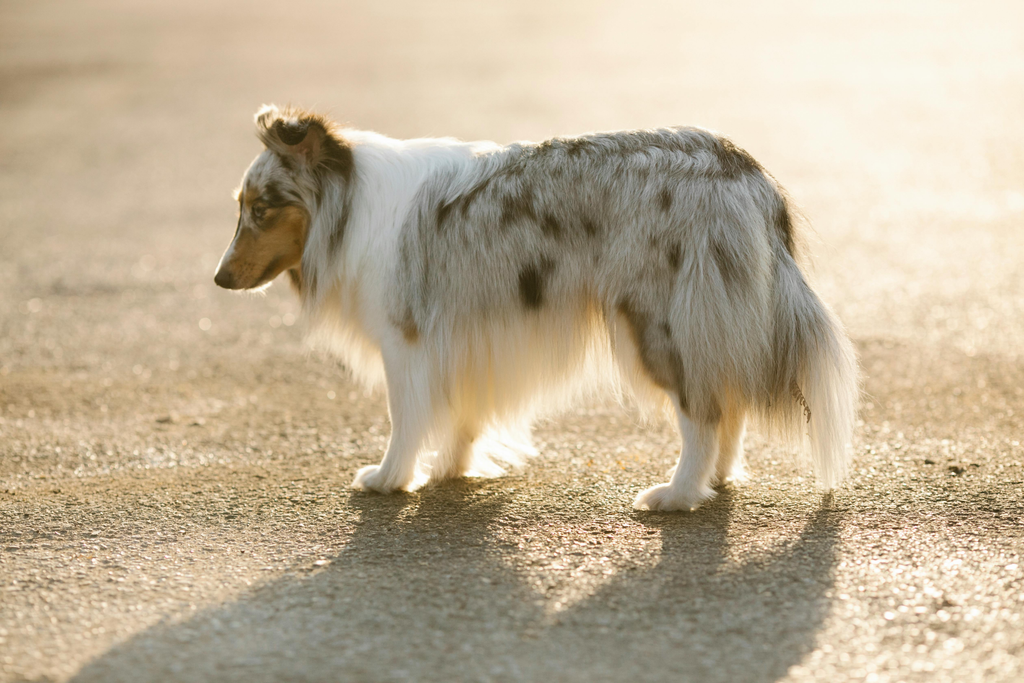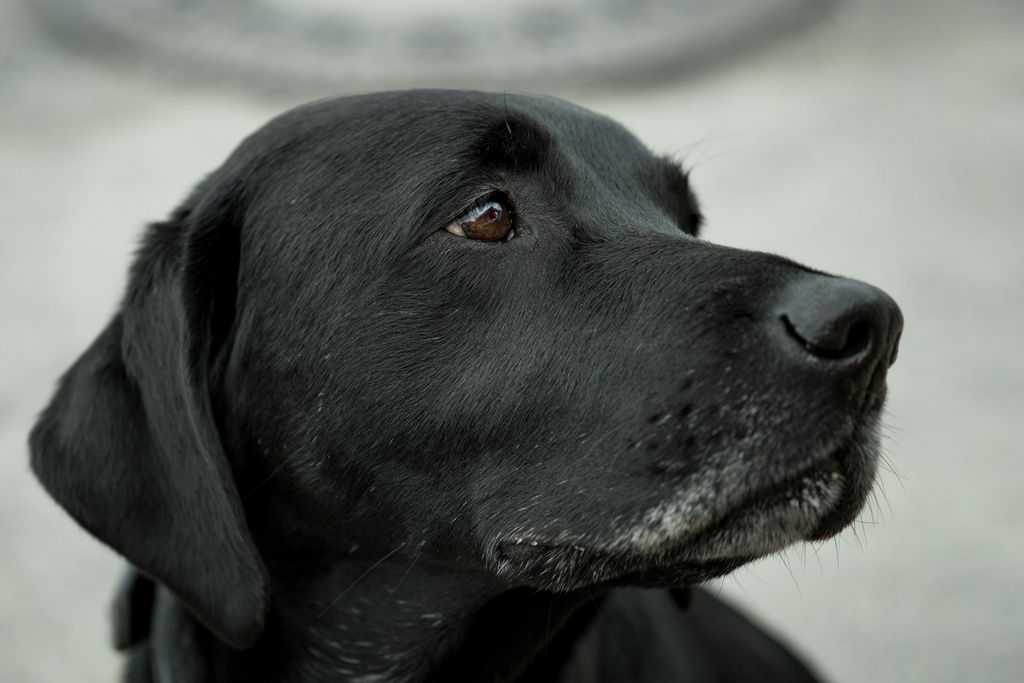Detecting and Treating Stomach Cancer in Dogs
Learning that your beloved pooch has stomach cancer can be pretty stressful and scary!
This rare but extremely serious disease affecting your dog's stomach wall and its neighboring areas won't just cause your pet a lot of abdominal pain, but can also lead to fatal consequences if not immediately and properly dealt with.
And just to make things even more challenging, choosing the best strategies for pain management and treatment for your dog's stomach cancer can be rather tricky, too! This is the reason why we've put together this blog post to get you in on the important things you need to know about this terrible wellness issue.
A quick go-to guide for canine cancer of the stomach
Besides getting you in on what exactly stomach cancer in dogs is, we will also walk you through the various types of the same, its possible risk factors, the clinical signs to take note of, how it is diagnosed, as well as other useful bits and pieces you will appreciate.
You can also look into our complete guide to dog cancer to find out more about different cancers affecting canine pets. This includes a series of quick yet informative articles on canine cancer and how to deal with this disease the right way.
What is Stomach Cancer in Dogs?

At its simplest, canine cancer of the stomach pertains to the uncontrolled growth and proliferation of cancer cells within the stomach and a dog's abdomen. It is not a common cancer among dogs and may stem the progression of malignant stomach tumors. This devastating disease is also referred to as "gastric carcinoma."
Given that a dog's body won't be able to digest and absorb nutrients properly, weight loss is a common indicator of this wellness problem. It is prevalent in some dog breeds like the Belgian Shepherd dog, too.
The majority of the stomach tumors found in dogs are malignant tumors and will most likely become stomach cancer sooner or later. However, it is also possible that some of these tumors are benign tumors and will not eventually progress into gastric carcinoma.
Types of canine stomach cancer
The following are the types of stomach cancer or gastric carcinoma that can affect dogs:
-
Gastric leiomyosarcoma
-
Canine gastric adenocarcinoma
-
Canine gastrointestinal neoplasms
-
Gastric lymphoma
-
Mast cell tumors
Gastric leiomyosarcoma in dogs is characterized by the development of malignant tumors on the smooth muscles that line the stomach and intestinal tract.
Canine gastric adenocarcinoma develops from the epithelial cells of the stomach, as well as the large and small intestines of affected dogs. This is considered the "most common" type of stomach cancer in dogs.
Canine gastrointestinal neoplasms can refer to any abnormal or unnecessary spread of cells in the gastrointestinal that may be attributed to cancer, particularly affecting the stomach and its neighboring regions.
Gastric lymphoma pertains to stomach cancer in dogs that originates in the lymphatic system. Some of the more common examples of this type are gastric neoplasms that develop due to enlarged lymph nodes.
Mast cell tumors also known as MCTs are usually found on the skin, but may also end up developing in your pet's stomach. While most incidences of MCTs are benign, there are still those that develop into gastric cancer. Interestingly, mast cells are linked with the immune system and
It is very important to remember, though, that whether it is stomach tumors or stomach cancer in dogs, seeking immediate professional assistance from a veterinary oncologist is a must. Early detection plays a key role when it comes to helping your pet overcome this serious health problem.
Only dealing with it at its advanced stages will only result in drastic adverse effects or even fatal consequences for your dog.
Is canine gastric epithelial neoplasia the same as stomach cancer?
The short answer is no.
Gastric epithelial neoplasia is basically a specific type of stomach cancer or gastric carcinoma. Other types of this disease include gastric adenocarcinoma, as well as stomach neoplasms. Keep in mind that while gastric carcinoma and gastric adenocarcinoma may sound similar, they are not one and the same.
You can say that the phrase "gastric cancer" is the umbrella term for this disease, while gastric epithelial neoplasia is a more specific reference for the same.
Are Stomach Tumors the Same as Stomach Cancer?

The short answer is no.
Stomach tumors pertain to abnormal masses or growths of tissue within and around the stomach, including the digestive tract. They can be categorized as benign tumors, which do not progress into cancer, and malignant tumors that are cancerous.
On the other hand, stomach cancer involves the multiplication and spread of cancer cells. Cancer may originate in one part of the body, which makes it a "primary cancer," and it may also spread or "metastasize" to another area like the lymph nodes and other organs. This is referred to as a "secondary cancer."
Benign tumors vs. malignant stomach tumors
Like we've stressed earlier, benign tumors do not typically progress into cancer, while malignant tumors have the possibility of becoming cancerous.
In the case of stomach cancer, it is not deemed as a "common cancer" among dogs yet once stomach tumors appear, they almost always become cancerous. Stomach tumors becoming cancer is more prevalent among dogs that have an increased risk of developing this disease like those belonging in certain breeds and other relevant factors. We will go over these in just a bit.
Do mast cell tumors cause canine stomach cancer?
The short answer is it depends.
If a mast cell tumor happens to be benign, the possibility that it will progress into cancer is low. However, if the said tumor is malignant, likely, that it is eventually going to become a case of stomach cancer.
Just to reiterate, regardless of the type of tumor involved, immediate and proper medical attention is required to prevent the whole thing from becoming worse. It is also important to be aware of the indicators of stomach or gastric cancer in dogs since early detection can make or break your pet's chances of recovery and healing.
Some of these indicators include noticing your dog expel vomit that looks like coffee grounds or observing him going through constant bouts of severe abdominal pain. We will tackle these symptoms very soon.
Do tumors always progress to cancer?
The short answer is it depends.
As previously highlighted, the possibility of a tumor progressing into stomach cancer or gastric carcinoma relies on the fact that the former is benign or malignant. While we're on the subject, keep in mind that localized tumors may be a bit tricky to deal with compared to those that can be surgically removed.
Again, regardless if it's a tumor or cancer, it is crucial that you give your dog the immediate and proper medical attention he deserves to avoid making the whole thing worse sooner or later.
What are the Risk Factors of Stomach Cancer in Dogs?

We'd just like to begin this part of our discussion by emphasizing that despite the strides in modern veterinary medicine, there is still no known exact cause of canine stomach cancer. However, the following factors are believed to be linked with this serious disease:
Age
Most dogs diagnosed with stomach cancer have a median age of around nine (9) years old. Nearing their senior "era," dogs of this age usually have a lot of things going on inside their bodies. One of these is a significant change in their physiological functions, which can also affect their immune system.
This is the biggest reason why boosting your canine best friend's immune system as early as now is crucial to keep him as healthy and happy as possible. Putting this off for too long can mean your dog can be the target of various diseases and illnesses during his lifetime.
Environmental factors
Gastric carcinoma in dogs is also seen to be linked with some environmental factors like regular diet, exposure to chemicals, and other instances that may somehow have an adverse effect on your pet's body.
Specific substances like aflatoxin, propylene glycol, nitrosamines, butylated hydroxytoluene, carrageenan, as well as ethoxyquin are seen to give a dog a higher risk of stomach cancer when ingested in a regular basis. Making it a habit to give your pet a detox is a smart way to help keep these in check.
Underlying health issue
Wellness problems affecting your canine companion's stomach like chronic gastritis, stomach ulcers, and issues involving the large or small intestine, among others, are deemed to somehow set off an increased risk of gastric carcinoma in dogs.
However, we'd just like to stress that the presence of these health issues does not automatically mean that your dog is already susceptible to cancer. Regular consultations with a pet wellness expert or a vet will help relieve your worries about your pooch being at risk of this disease.
One very common indicator if a dog is afflicted with this type of cancer is unexpected weight loss.
Breed and heredity
Some domestic canine breeds have a genetic predisposition to stomach cancer. These include Rough Collies, Staffordshire Bull Terriers, Belgian Shepherds, Chow Chows, Beagles, Norwegian Lundehunds, as well as the Belgian Tervuren (not to be confused with the Belgian Shepherd dog).
Although the exact reason why these dogs are rather vulnerable to stomach cancer, Vet Med. Assoc. and Vet Rec. studies theorize that this may be due to a gene-based predisposition. There is also a correlation between stomach cancer with age: older dogs are more likely to be diagnosed with this serious health issue.
Additionally, it is interesting to note that stomach cancer affects male dogs more often than females. For example, male middle-aged or senior Chow Chows tend to be at risk of this disease compared to other members of the breed.
Signs of Stomach Cancer in Dogs

What's really alarming about canine stomach cancer is that its symptoms tend to mimic a lot of common health problems in dogs, such as diarrhea and tummy upsets. This is one of the reasons why detecting it can be rather tricky, especially during its early stages.
However, these clinical signs tend to get gradually worse over time—which means treatment can become more challenging for your pet the longer it is neglected. Below are the indicators of stomach cancer in dogs that you should keep an eye on:
-
Frequent or bloody vomit
-
Tenderness of the abdomen
-
Black or bloody stool
-
Decreased appetite/weight loss
-
Lethargy
The earlier cancer is detected and treatment can be started, the better for your pet! If you notice any of these symptoms, make sure to book a checkup (preferably with a specialist like a veterinary pathologist or oncologist) right away.
You will be able to strategize your treatment plan as soon as possible. Always remember that dealing with stomach cancer in dogs early means a higher chance of helping your pooch overcome this terrible disease.
How is Stomach Cancer—Dogs Diagnosed?

Unlike other canine health issues, stomach cancer cannot be determined by just a routine physical examination. Based on the guidelines set by Vet Med. Assoc. and Vet Rec. standards, the following are the procedures recommended to determine if stomach cancer in dogs exists:
Biopsy
This procedure involves inserting a needle into a suspicious lump or growth and extracting tissue samples, which are referred to as "biopsy samples." The samples collected are then studied for the presence of cancer cells, as well as the extent of the disease if it does exist. Some biopsies use special X-rays to guide the specialist where to extract the tissues needed.
Fine needle aspiration (FNA)
While it may be deemed as quite similar to a biopsy, this procedure involves the use of an extremely thin tube or needle into the affected area. The same treatment is given to the extracted samples to determine if gastric cancer is present.
Other forms of canine stomach cancer diagnosis
Apart from biopsy and fine needle aspiration (FNA), other tests used to determine the presence of gastric cancer include abdominal ultrasound, blood tests, endoscopic examination, chest X-rays, magnetic resonance imaging (MRI), and computed tomography (CT) scans.
Stomach Cancer in Dogs: Life Expectancy
Unfortunately, the outlook for dogs diagnosed with stomach cancer is poor. Most dogs afflicted with stomach cancer live for approximately 6 months (median survival time) after a diagnosis of the same.
A lot depends on the size, severity, and type of stomach cancer involved, but most of these cases are found to be bleak after the cancer has already spread to other areas in the later stages.
As we've highlighted earlier, being familiar with the symptoms of stomach cancer, such as unexpected weight loss, vomiting blood, and passing of black stools, can help you start strategizing your treatment options—not to mention the right nutritional support—as soon as possible.
What are the Conventional Treatment Options for Stomach Cancer in Dogs?
When it comes to canine stomach cancer, the first thing that usually comes to mind among pet parents is surgical removal. Other conventional recourses also include radiation therapy and chemotherapy. Surgical removal may also be combined with chemo and radiation therapy.
Can Stomach Cancer in Dogs Be Treated Naturally?

The short answer is yes.
If your dog is sick, you, of course, want to do everything you can to help him. After receiving your diagnosis, your veterinarian may have recommended surgery, chemotherapy, and/or radiation as treatment for stomach cancer in dogs.
We know that you want the best treatment possible for your pup, and so do we. You’re probably wondering if there are any natural remedies for treating stomach cancer in dogs—and there are!
PIPTOPET is specially designed to support your dog during gastric cancer
Here at Zumalka, we are dedicated to finding natural products for animals. That is why we have worked so hard to design PIPTOPET: a natural product with antiviral and antibiotic properties designed to boost your dog’s immune system.
PIPTOPET has anti-inflammatory and anti-tumor properties, provided by the wonder mushroom called Fomitopsis betulina. When stomach cancer gets into the picture, you want to boost your dog’s body to give him a fighting chance against this disease and you also want to reduce the occurrences of secondary infections.
What sets this natural product for stomach cancer in dogs is that it doesn't have the adverse side effects that your pet may experience during conventional treatment. If you're still having a tough time zeroing in on a natural treatment option for gastric cancer, PIPTOPET is one option you should check out.






Leave a comment